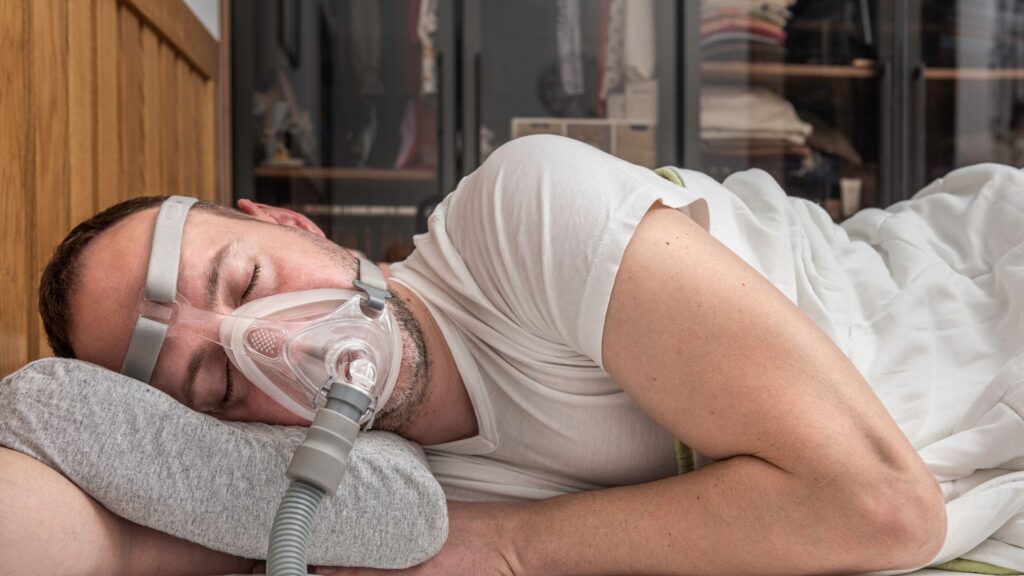What Is an Alternative to a CPAP Machine?
For those diagnosed with obstructive sleep apnea (OSA), a CPAP machine (Continuous Positive Airway Pressure) is often the go-to treatment. This device keeps your airway open while you sleep by delivering a steady stream of air through a mask. While CPAP machines are highly effective, they aren’t always the most comfortable or convenient option for everyone. If you’re struggling with your CPAP or are looking for alternatives, don’t worry—there are other solutions that might be a better fit for your lifestyle and sleep needs. Let’s explore some effective alternatives to CPAP and how your dentist may play a key role in helping you sleep soundly.

What Is Obstructive Sleep Apnea?
Before we dive into alternatives, it’s important to understand obstructive sleep apnea (OSA). OSA occurs when the muscles in the throat relax during sleep, causing a temporary collapse of the airway. This leads to repeated pauses in breathing throughout the night, disrupting your sleep and decreasing oxygen levels in your blood. Over time, untreated OSA can contribute to serious health issues, including high blood pressure, heart disease, and stroke. That’s why finding a treatment that works for you is so important.
Why Seek an Alternative to CPAP?
Although CPAP machines are highly effective at treating OSA, not everyone adapts well to using them. Common complaints include:
- Discomfort: Wearing the mask can be uncomfortable, especially for side or stomach sleepers.
- Noise: Even newer, quieter CPAP models may still produce sounds that disturb you or your partner.
- Dry mouth and nasal congestion: The airflow from a CPAP machine can dry out your airways, causing irritation.
- Travel difficulties: Bringing a CPAP machine along for travel can be cumbersome, and it requires a power source.
If you’re experiencing these or other issues with your CPAP machine, you may want to consider an alternative. Fortunately, there are several other treatment options available—some of which can be provided by your dentist.
Oral Appliances: A Leading CPAP Alternative
One of the most popular alternatives to CPAP is an oral appliance, also known as a mandibular advancement device (MAD). This custom-made device, provided by your dentist, works by gently repositioning your lower jaw and tongue to keep your airway open while you sleep. Oral appliances are designed for comfort and ease of use, and they’re especially effective for those with mild to moderate OSA.
- Comfort: Unlike CPAP masks, oral appliances are small, comfortable, and easy to wear, even for side sleepers.
- Portability: Oral appliances are compact and easy to travel with—no power source or extra luggage required!
- Silent: Oral appliances are silent, allowing both you and your partner to sleep peacefully.
- Custom fit: Made to fit your unique bite, oral appliances are comfortable and won’t cause jaw pain or discomfort.
Benefits of Oral Appliances:
At Carlton Dental Care, we work closely with sleep specialists to ensure that the oral appliances we provide are tailored to your needs and offer optimal results.
Positional Therapy as an Alternative to CPAP: Adjusting Your Sleep Position
Another non-invasive alternative to CPAP is positional therapy. For some people, OSA is worse when they sleep on their back because this position allows the tongue and soft tissues to collapse into the airway. Positional therapy involves using pillows, specialized devices, or even alarms to encourage you to sleep on your side. While it may not work for everyone, it can be an effective option for those whose sleep apnea is position-dependent.
Weight Loss and Lifestyle Changes
If you’re overweight, losing even a small amount of weight can have a significant impact on your sleep apnea symptoms. Excess weight, especially around the neck, puts pressure on the airway, increasing the likelihood of collapse during sleep. Weight loss combined with other lifestyle changes, such as quitting smoking and reducing alcohol consumption before bed, can help improve your breathing and reduce your need for CPAP or other devices.
Surgery: A More Permanent Solution for Sleep Apnea
In severe cases where other treatments aren’t effective, surgery may be recommended. Surgical options for OSA range from removing excess tissue in the throat (uvulopalatopharyngoplasty) to repositioning the jaw (maxillomandibular advancement) or implanting a device that stimulates the nerves controlling breathing (inspire therapy). Surgery is typically considered a last resort, as it carries higher risks than other treatments.
How Can Carlton Dental Care Help with CPAP Alternatives?
At Carlton Dental Care, we offer oral appliance therapy as an effective alternative to CPAP for patients with mild to moderate obstructive sleep apnea. Our team can work with you to create a custom-fitted appliance designed to keep your airway open, allowing you to breathe easily and sleep soundly. We collaborate with sleep specialists to ensure your treatment plan is tailored to your specific needs.
If you’re having trouble with your CPAP or want to explore more comfortable options, give us a call today to schedule a consultation. We’re here to help you get the restful, restorative sleep you deserve!
Conclusion
If you’re finding CPAP therapy challenging or uncomfortable, don’t worry—there are alternatives. Oral appliances, positional therapy, lifestyle changes, and, in some cases, surgery can all provide effective solutions for managing obstructive sleep apnea. At Carlton Dental Care, we specialize in offering customized oral appliances that are comfortable, portable, and easy to use. If you’re ready to say goodbye to CPAP discomfort, we’re here to help you find the right solution for better sleep and better health.
November 1, 2024